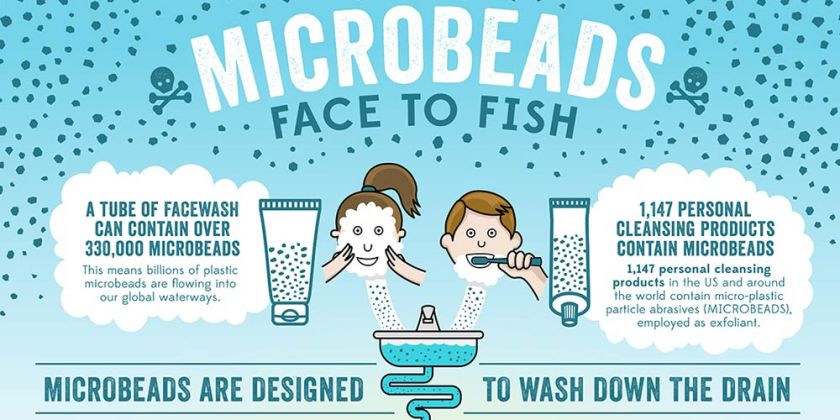The federal government in Canada made a decision to ban the sale of shower gels, toothpaste and facial scrubs containing plastic microbeads. This ban will take effect in 2018.
According to globalnews.ca the Canadian government has been studying how plastic microbeads affect the environment.
Environment Canada began studying the impacts of plastic microbeads on wildlife and the environment under the previous Conservative government in March 2015. The beads were officially declared toxic in June of this year.
The tiny pieces of plastic are used as exfoliants and cleansers in toiletries but do not dissolve. They then find their way into oceans, lakes and rivers where the beads are ingested by a variety of organisms.
According to the article, nine U.S. states already have laws that prohibit sales and manufacturing of personal hygiene products that contain beads.
The U.S. Congress approved the banning of microbeads in toiletries last December, effective July 1, 2017, while the European Union Commission recognized in December 2014 that the materials could not be labelled as environmentally friendly. Australia has a voluntary ban in effect for mid-2018.

According to popsci.com the beads are really harmful as they never dissolve.
Microbeads have become so ubiquitous that an estimated 808 trillion pieces swirl down American drains every day. When this plastic-laden wastewater goes through treatment plants, about 99 percent of the beads settle into sludge, which is often used as fertilizer.
Thanks to rain and runoff, these beads can still enter the water supply. Meanwhile the one percent that escaped the sludge—roughly 8 trillion microbeads—are released directly into our waterways. That’s enough plastic to cover 300 tennis courts.
According to popsci.com anybody can check the ingredients list on the back of their personal care products to help stop water contamination.
In the meantime, you can avoid further water contamination by checking the ingredients in your favorite brand of exfoliating cleanser. If the list includes polyethylene or polypropylene, two types of plastic commonly used in microbeads, you might want to leave that scrub on the shelf.